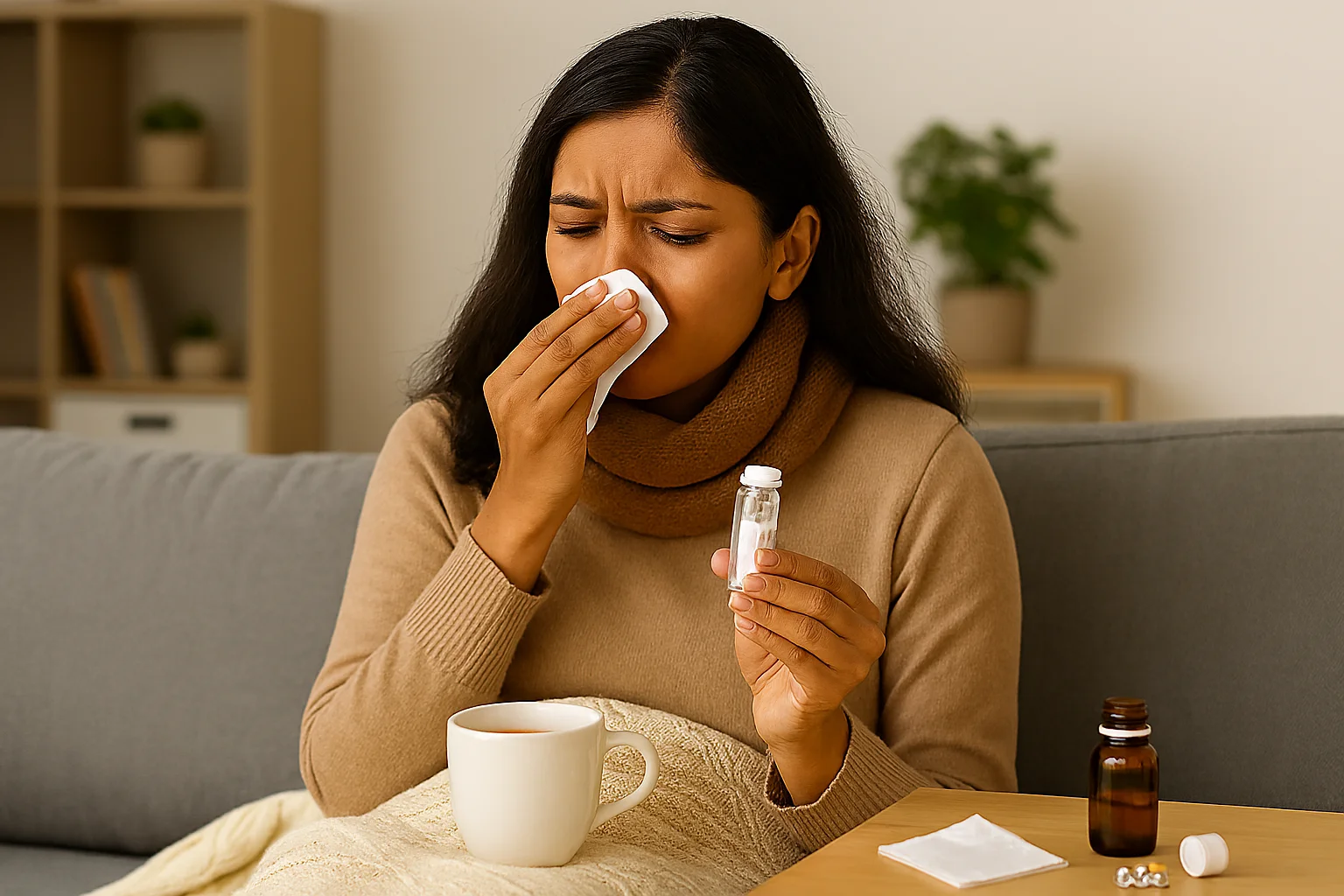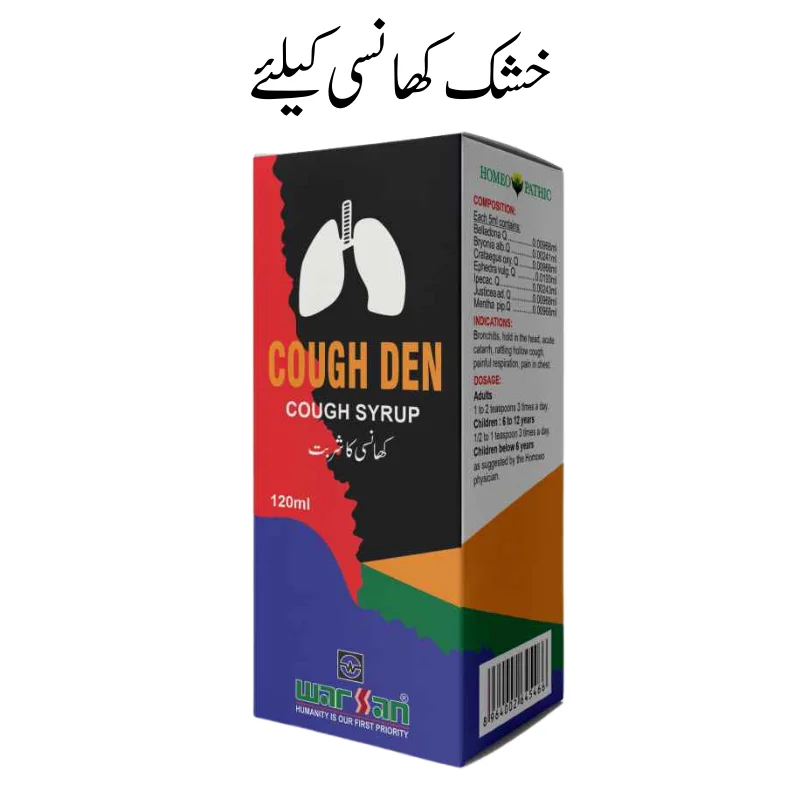Can homeopathy really help with cold and cough relief?
Colds and coughs are among the most common health issues, affecting people of all ages multiple times a year. While they usually resolve on their own, the discomfort — runny nose, sore throat, sneezing, congestion, or a persistent cough — can be frustrating. Conventional treatments often involve over-the-counter medications to manage symptoms, but these may cause drowsiness or other side effects. Homeopathy offers an alternative approach, aiming not just to mask the symptoms, but to address the root cause and support the body’s natural healing. With remedies tailored to your unique symptom profile, homeopathy focuses on holistic and gentle recovery.
How does homeopathy treat cold and cough differently?
Conventional medicine treats cold and cough symptoms by suppressing them — decongestants open nasal passages, cough syrups quiet the cough, and antihistamines reduce sneezing. Homeopathy, however, works on the principle of “like cures like.” It uses highly diluted substances that, in larger amounts, might cause symptoms similar to those of the illness. The aim is to stimulate the body’s immune system to fight off the infection naturally. A homeopath looks at your symptoms in detail — for example, is your cough dry or phlegmy? Is your cold worse in the morning or at night? Do you feel better with warmth or cool air? This personalisation is the core strength of homeopathy.
Which homeopathic remedies are best for colds?
Some commonly used homeopathic remedies for colds include:
- Aconitum napellus – Often suggested at the very first sign of a cold, especially if symptoms start suddenly after exposure to cold wind.
- Allium cepa – Useful for colds with watery nasal discharge and lots of sneezing, often worse in warm rooms.
- Euphrasia officinalis – Chosen when eye irritation accompanies nasal symptoms.
- Nux vomica – Suitable for colds with a blocked nose at night and runny nose during the day, often linked to overwork or stress.
The right choice depends on the full range of your symptoms, not just the runny nose or congestion.
Which homeopathic remedies are best for coughs?
Different cough types require different remedies:
- Bryonia alba – For dry, painful coughs that worsen with movement and talking.
- Pulsatilla – For coughs with thick, yellow phlegm, often worse at night but improved with fresh air.
- Spongia tosta – For dry, barking coughs, often described as “seal-like.”
- Drosera rotundifolia – For persistent, spasmodic coughs that may cause gagging or vomiting.
A trained homeopath will match the remedy to the nature, timing, and triggers of your cough.
Coughden Syrup
Is there scientific evidence for homeopathy in cold and cough treatment?
Studies on homeopathy for colds and coughs show mixed results. Some clinical trials have reported reduced symptom severity and faster recovery with remedies like Oscillococcinum for flu-like illnesses. Critics argue that the benefits may be due to placebo effects, while supporters highlight the safety, low risk of side effects, and patient satisfaction. Even if part of the benefit comes from the consultation process itself, patients often value the holistic attention they receive in homeopathic care.
When should you consider homeopathy for cold and cough?
Homeopathy is best considered for mild to moderate cases of cold and cough, especially if you want to avoid frequent use of antibiotics or strong medications. It can be used at the onset of symptoms to potentially shorten the illness, or during recovery to manage lingering coughs or congestion. However, it is not a substitute for urgent medical care in severe cases, such as difficulty breathing, very high fever, or suspected pneumonia.
Can homeopathy be combined with conventional treatments?
Yes. Homeopathy can complement conventional cold and cough treatments. For example, you might continue using a prescribed inhaler for asthma while also taking homeopathic remedies for a lingering cough. This combined approach should be guided by both your doctor and homeopath to ensure the treatments work together safely.
Is homeopathy safe for children and older adults with cold and cough?
One of the main reasons people choose homeopathy is its safety profile. Remedies are highly diluted, making toxic side effects rare. This makes them suitable for children, older adults, and those sensitive to medications. That said, it’s always important to consult a qualified practitioner to ensure the right remedy and dosage.
Why do some people prefer homeopathy over regular cold medicines?
Many people prefer homeopathy because it feels more natural, is generally free from drowsiness-causing chemicals, and provides a personalised approach. The in-depth consultation process also makes patients feel heard, which can improve satisfaction with their care. For frequent cold and cough sufferers, homeopathy may also focus on strengthening overall immunity, which is a big attraction.
FAQs – Homeopathy for Cold and Cough
Colds and coughs are self-limiting in most cases, but homeopathy may reduce symptom severity and speed recovery.
If taken at the onset, remedies may show improvement within hours to a couple of days.
Yes, when prescribed by a qualified homeopath and used in proper doses.
Yes, but inform your healthcare providers so they can coordinate your treatment.
You can buy them from licensed homeopathy clinics, health stores, or reputable online suppliers. For best results, consult a professional first.
-
-
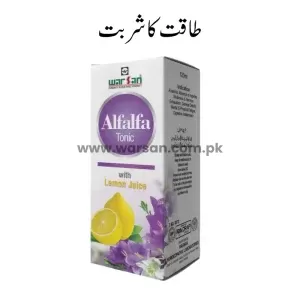 Rated 5.00 out of 5 based on 1 customer rating₨ 200 – ₨ 650Price range: ₨ 200 through ₨ 650Select options Quick View
Rated 5.00 out of 5 based on 1 customer rating₨ 200 – ₨ 650Price range: ₨ 200 through ₨ 650Select options Quick View -
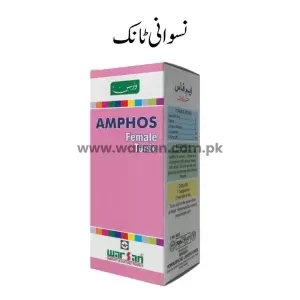 Rated 4.00 out of 5 based on 1 customer rating₨ 200 – ₨ 650Price range: ₨ 200 through ₨ 650Select options Quick View
Rated 4.00 out of 5 based on 1 customer rating₨ 200 – ₨ 650Price range: ₨ 200 through ₨ 650Select options Quick View -
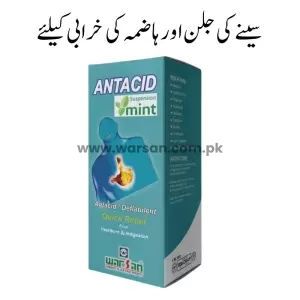 Rated 4.00 out of 5 based on 1 customer rating₨ 220 – ₨ 650Price range: ₨ 220 through ₨ 650Select options Quick View
Rated 4.00 out of 5 based on 1 customer rating₨ 220 – ₨ 650Price range: ₨ 220 through ₨ 650Select options Quick View

